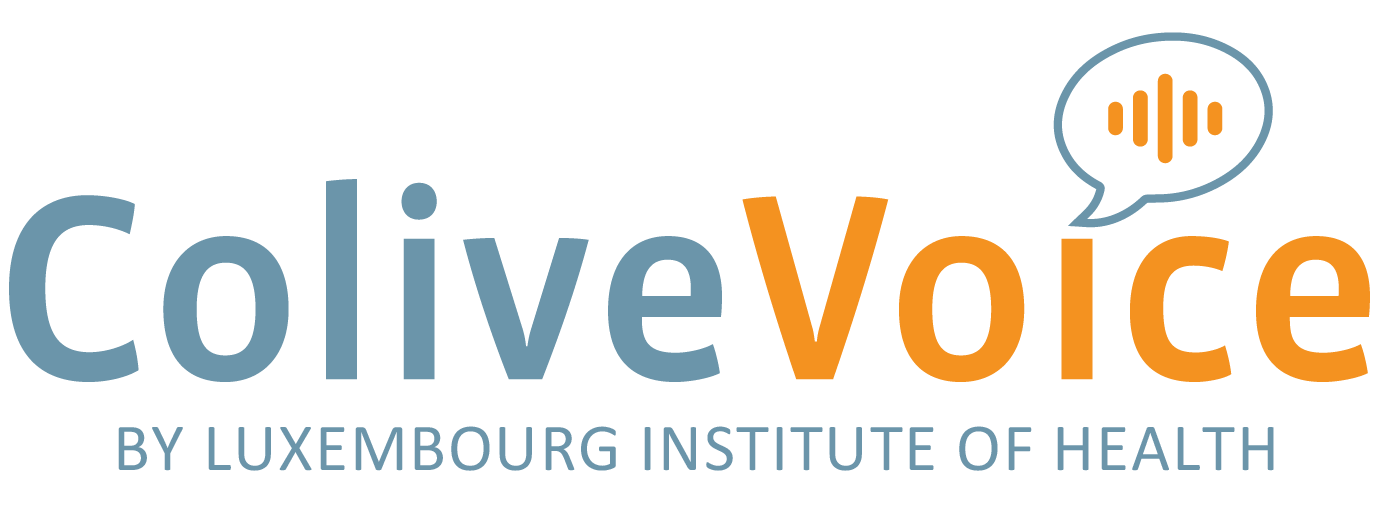
FAQs
How can I support Colive Voice?
To support Colive Voice, consider participating yourself or encouraging others around you to participate. Your participation is very important for this research, we thank you in advance for it. The more participants, the more precise the results will be, so please spread the word around you about Colive Voice (friends, family and on social media). We will provide you with a link to share the project at the end of the survey, along with visuals to share online or flyers to upload in our section “Resources”.
Who can participate?
The study is open to all. We need participants from all over the world who speak different languages and have various health conditions:
- Adults and teenagers from 15 years
- People from all countries
- People without special health problems
- People living with cancer or who have been diagnosed with cancer
- People with diabetes
- People with other serious chronic or infectious diseases
I don’t have any diseases, can I participate?
Yes. You can participate regardless of your health status and help improve healthcare for patients with chronic diseases
I am a Colive Voice participant, what are my rights?
As no identifying data is collected (no name, email address, postal address or phone number), the participant’s rights are limited. The exercise of such rights would require identifying study participants, which would considerably weaken the security and confidentiality of data collected for our survey.
However, participants have the right to lodge a complaint with Luxembourg’s National Commission for Data Protection (CNPD) in relation to the data processing.
For any question or information about how LIH processes your personal data, please contact LIH’s Data Protection Officer by email at dpo@lih.lu or by post at the following address:
LUXEMBOURG INSTITUTE OF HEALTH
Data Protection Office
1A-B, rue Thomas Edison
L-1445 Strassen
LUXEMBOURG
I am not comfortable giving out my medical information, will my data be protected?
LIH takes appropriate security measures, depending on the sensitivity of the data concerned, to protect your data from the risk of unauthorised access, loss, fraudulent use, disclosure, modification and destruction. Your data will be treated as strictly confidential. More informations about data processing on our Data Privacy and Security page.
Who leads the Colive Voice Study?
The study is conducted by the Deep Digital Phenotyping (DDP), a research unit dedicated to digital health, of the Luxembourg Institute of Health.
Who is funding Colive Voice?
The study is mainly funded by the Luxembourg Institute of Health and has also received financial support from the French Speaking Diabetes Society (SFD).
What themes are covered in our questionnaire?
Our health questionnaire, combined with voice recording, covers a wide range of topics to help you better understand your state of health:
- General profile: language, age, gender, weight, lifestyle habits, quality of life, alcohol and tobacco consumption.
- Symptoms: stress, anxiety, sleep disorders, pain, fatigue…
- Current treatments: for pain, cholesterol, diabetes, hypertension, anticoagulants, antidepressants, anti-reflux, hormone treatments…
- Diseases: diabetes, mental health, cardiovascular diseases, cancer, respiratory diseases, neurological diseases…
Curious to know more? Check out the full questionnaire ici.
What is machine learning?
Machine Learning algorithms learn to perform a task autonomously or to make predictions from data. Unlike a traditional computer programme, a Machine Learning system does not follow instructions, but learns from experience. Its performance improves as it is “trained” and the algorithm is exposed to more data.
What is digital health?
Digital health can be defined as the use of new technologies such as artificial intelligence, virtual reality, connected devices or mobile apps to improve healthcare. The technology supports clinical decisions, allows for improved diagnosis or remote monitoring of diseases.
What is a vocal biomarker?
A vocal biomarker can be defined as a signature, a feature or a combination of features from the audio signal of the voice that is associated with a clinical outcome and can be used to monitor patients, diagnose a condition or grade the severity or the stages of a disease or for drug development.
Do I get paid for participating in Colive Voice?
No, the study is anonymous in order to protect the medical data collected as much as possible, so we cannot identify the participants in order to pay them afterwards.
I just participated, can I have my results?
Unfortunately, no. Our study focuses on training machine learning algorithms to recognize symptoms and diseases, such as fatigue, diabetes, and mental health issues, by matching questionnaire answers with voice recordings. Since the study is completely anonymous, we cannot link individual participants to their specific data. However, with the help of participants like you, we aim to develop tools that could one day assist in diagnosing diseases, monitoring symptoms, and improving patient follow-up.


